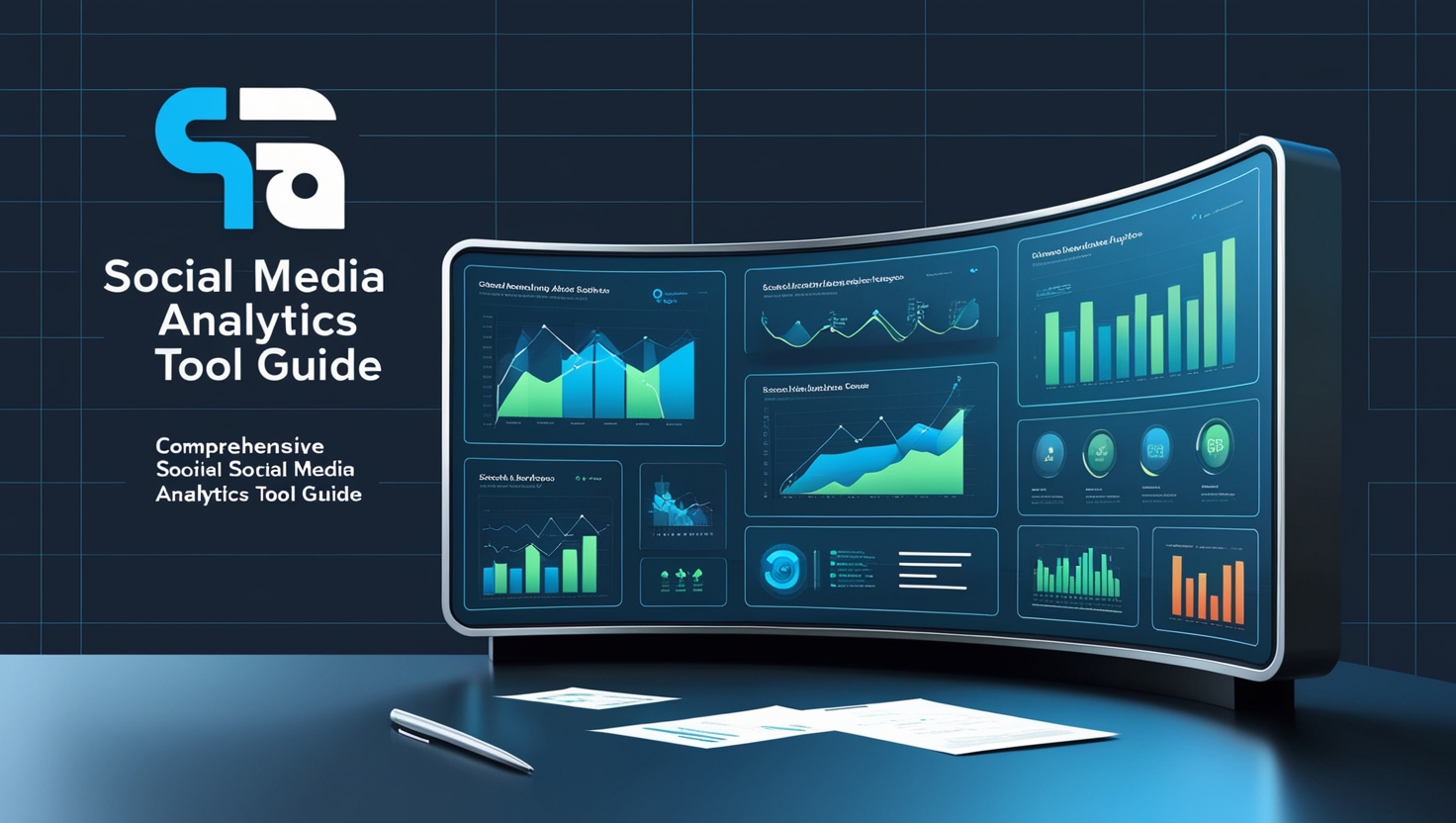To Create Effective SEO Strategy for 2024, begin with thorough keyword research to target high-volume keywords. Optimize your website for user experience and SEO, ensuring mobile-friendliness and fixing technical issues. Regularly monitor search engine results and adapt to algorithm changes to boost organic traffic and enhance visibility. Follow these steps to build a successful SEO plan that drives visitors to your site.
What Are the Key Components of an Effective Seo Strategy?
To Create Effective SEO Strategy in 2024, ensure your website is mobile-friendly and optimized for search engines. Focus on building quality backlinks to enhance authority and search ranking. Regularly analyze performance and adapt your tactics. Additionally, develop engaging content aligned with your SEO goals, using a free template to guide your campaigns and improve visibility, attracting more visitors to your site.
Understanding Keyword Research
Understanding keyword research is essential for optimizing your website for organic search. Identifying the right keywords helps search engines better understand your content. An SEO expert can develop a strategy that aligns with search engine algorithms, enhancing your website design and user appeal, ultimately driving more traffic to your site.
On-Page SEO Best Practices
Implementing On-Page SEO best practices is crucial for improving search engine rankings. Use relevant keywords in titles, headers, and meta descriptions. Ensure high-quality, engaging content to encourage interaction and reduce bounce rates. Finally, optimize images and use internal linking to enhance site navigation.
Technical SEO Considerations
Technical SEO is vital for optimizing website performance and visibility. Key considerations include ensuring fast site speed, implementing structured data, maintaining a clean URL structure, and addressing mobile-friendliness. Regularly checking crawl errors and optimizing XML sitemaps enhance discoverability, laying a strong foundation for online success.
How to Conduct a Website Audit for SEO?

Technical SEO involves optimizing your website’s infrastructure to improve its visibility on search engines. Key considerations include site speed, ensuring fast loading times for a better user experience.
Additionally, implementing structured data helps search engines understand your content better, enhancing rich snippets.
Lastly, maintaining a clean URL structure and utilizing XML sitemaps aids in efficient crawling and indexing by search engines.
Identifying Technical SEO Issues
- Conduct a Thorough Site Audit: Identify technical SEO issues impacting performance.
- Check for Broken Links: Fix or remove any broken links to enhance user experience.
- Assess Loading Speeds: Identify and address slow loading speeds that can deter visitors.
- Evaluate Indexing Issues: Ensure your pages are properly indexed by search engines.
- Utilize Google Search Console: Gain insights into crawl errors and overall site health.
- Implement Recommendations: Take action on identified issues to improve website performance.
Evaluating Current SEO Performance
Evaluating SEO performance requires analyzing organic traffic, keyword rankings, and conversion rates. Use tools like Google Analytics and Search Console for insights that drive data-driven improvements.
Creating a List of Keywords
Creating a list of keywords is essential for effective communication. Begin by identifying relevant terms that resonate with your audience. Next, categorize these keywords based on themes or topics. Finally, prioritize them to enhance visibility and engagement in your content strategy.
How to Optimize Your Content for Search Engines?
| Step | Description |
|---|---|
| Conduct Keyword Research | Identify relevant terms and phrases for your content. |
| Incorporate Keywords | Use keywords naturally in the text, including headings and meta descriptions. |
| Ensure High-Quality Content | Create engaging, valuable information that search engines favor. |
| Use Internal & External Links | Enhance credibility and authority by linking to reputable sources. |
| Focus on Mobile Optimization | Ensure your site is mobile-friendly for better user experience and rankings. |
| Improve Loading Times | Optimize site speed as it significantly affects search engine rankings. |
Content Design for SEO
Content design for SEO emphasizes creating engaging, keyword-rich material that ranks well. Optimizing headings, using meta tags, and maintaining a clear structure enhance visibility and user experience, ultimately driving organic traffic and improving conversion rates.
Using Effective SEO Strategies

Using Effective SEO Strategies is crucial for enhancing online visibility. By optimizing your website’s content and structure, you can improve search engine rankings. Incorporating relevant keywords and building quality backlinks are essential tactics. Regularly updating your site with fresh content also helps attract and retain visitors.
Understanding Search Intent
Understanding search intent is essential for optimizing content and enhancing user experience. By identifying whether searches are informational, navigational, transactional, or commercial, you can tailor your content to meet user needs. This relevance boosts engagement and conversion rates, helping businesses connect with their audience effectively and drive online success.
What Role Do Backlinks Play in SEO?
Backlinks are crucial for enhancing a website’s SEO performance. They serve as a vote of confidence from other sites, signaling to search engines that your content is valuable.
High-quality backlinks can improve your site’s authority and ranking, driving more organic traffic. Thus, building a strong backlink profile is essential for online visibility.
Building Quality Backlinks
Building quality backlinks is vital for improving your website’s search ranking. Focus on acquiring links from authoritative sites through guest blogging, valuable content creation, and social media engagement to boost visibility and establish credibility with your audience.
Off-Page SEO Techniques
Off-page SEO techniques enhance website authority and visibility. Key methods include building high-quality backlinks, engaging in social media marketing, guest blogging, and influencer collaborations, all of which improve search engine rankings and boost your site’s reputation.
Tracking Backlink Performance
Tracking backlink performance is vital for evaluating SEO effectiveness. By monitoring metrics like referral traffic and domain authority using tools like Google Analytics and Ahrefs, you can optimize link-building efforts and enhance overall website visibility.
How to Measure SEO Performance and KPIs?
To measure SEO performance, track key performance indicators (KPIs) such as organic traffic, bounce rate, and conversion rates. Use tools like Google Analytics and Search Console to gather data.
Key Metrics to Monitor
Key metrics to monitor are essential for assessing performance and guiding decision-making. Focus on conversion rates, which indicate the effectiveness of marketing strategies. Additionally, track customer acquisition costs to ensure profitability. Lastly, customer lifetime value helps evaluate long-term relationships and overall business health.
Using Seo Tools for Tracking
Key metrics to monitor include conversion rates for customer engagement, customer acquisition costs for spending efficiency, customer lifetime value for long-term profitability, and return on investment to measure marketing effectiveness. These metrics guide informed decision-making.
Adjusting Your Strategy Based on Data
In today’s fast-paced environment, leveraging data analysis for performance metrics enables businesses to identify trends, make informed decisions, and continuously improve strategies for maximum effectiveness and resource optimization.
What Are the Best Practices for Seo in 2024?

Keyword research is essential in 2024, emphasizing long-tail keywords and user intent. Optimize for mobile-friendliness and page speed, create engaging content, and use structured data to enhance visibility and improve search result appearances.
Creating an SEO Plan for the Future
- Focus on Keyword Research: Identify relevant keywords to optimize content effectively.
- Analyze Current Trends: Review existing SEO trends and predict future changes in search algorithms.
- Enhance Online Visibility: Implement strategies that boost the visibility of your website in search results.
- Prioritize User Experience: Design user-friendly interfaces and navigation to improve user engagement.
Developing a Strong SEO Strategy
A strong SEO strategy requires thorough research on your target audience and relevant keywords for effective content creation. Focus on both on-page and off-page techniques while regularly analyzing performance metrics for continuous improvement and trend adaptation
In Conclusion
To Create Effective SEO Strategy, remember that success is a continuous journey rather than a one-time effort. By integrating technical excellence, crafting high-quality content, and prioritizing user experience, you can significantly enhance your website’s visibility. Regularly monitoring performance and adapting to changes in the digital landscape will ensure that your efforts yield sustainable results over time. Stay committed, stay informed, and actively work to Create Effective SEO Strategy that allows your online presence to flourish!












